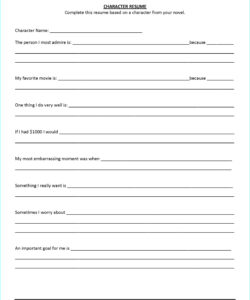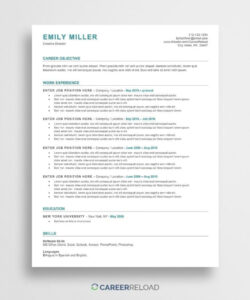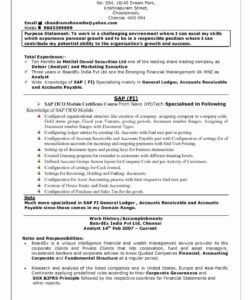When it comes to writing a resume, it’s important to include all relevant information that showcases your skills and experience. If you have a minor that is relevant to the job you’re applying for, it’s important to include it on your resume. Here are some tips on how to include a minor on a resume.
1. Determine if Your Minor is Relevant
The first step in including your minor on your resume is to determine if it’s relevant to the job you’re applying for. If your minor is in a field that is related to the job, it can be a great way to showcase your knowledge and skills. For example, if you’re applying for a job in marketing and you have a minor in graphic design, including it on your resume can show that you have a well-rounded skill set.
On the other hand, if your minor is not relevant to the job, it may be best to leave it off your resume. Including irrelevant information can make your resume look cluttered and unfocused.
2. Decide Where to Include Your Minor
Once you’ve determined that your minor is relevant to the job, you need to decide where to include it on your resume. There are a few different options:
- Education Section: If your minor is in a field that is related to your degree, you can include it in the education section of your resume. List your degree first, followed by your minor.
- Skills Section: If your minor is in a field that is not related to your degree, you can include it in the skills section of your resume. This is a great option if you want to highlight your skills in a particular area.
- Experience Section: If you gained experience in your minor field through internships or other work experience, you can include it in the experience section of your resume.
3. Highlight Your Skills and Knowledge
When including your minor on your resume, it’s important to highlight the skills and knowledge you gained through your coursework. For example, if you have a minor in Spanish, you can highlight your language skills and cultural knowledge. If you have a minor in computer science, you can highlight your programming skills and knowledge of software development.
Make sure to use action verbs and specific examples to showcase your skills. For example, instead of saying “Took courses in graphic design,” say “Designed marketing materials for local non-profit organization.”
4. Keep it Concise
While it’s important to include your minor on your resume if it’s relevant to the job, it’s also important to keep your resume concise. Make sure that your minor is not taking up too much space on your resume and that it’s not distracting from your other qualifications.
Conclusion
When it comes to including a minor on your resume, it’s important to determine if it’s relevant to the job and to highlight the skills and knowledge you gained through your coursework. By following these tips, you can create a well-rounded resume that showcases your qualifications and experience.
FAQ
Q: Should I include my minor on my resume?
A: If your minor is relevant to the job you’re applying for, it’s a good idea to include it on your resume. If it’s not relevant, it may be best to leave it off.
Q: Where should I include my minor on my resume?
A: You can include your minor in the education section, skills section, or experience section of your resume, depending on where it’s most relevant.
Q: How do I highlight my minor on my resume?
A: When including your minor on your resume, make sure to highlight the skills and knowledge you gained through your coursework. Use action verbs and specific examples to showcase your skills.


